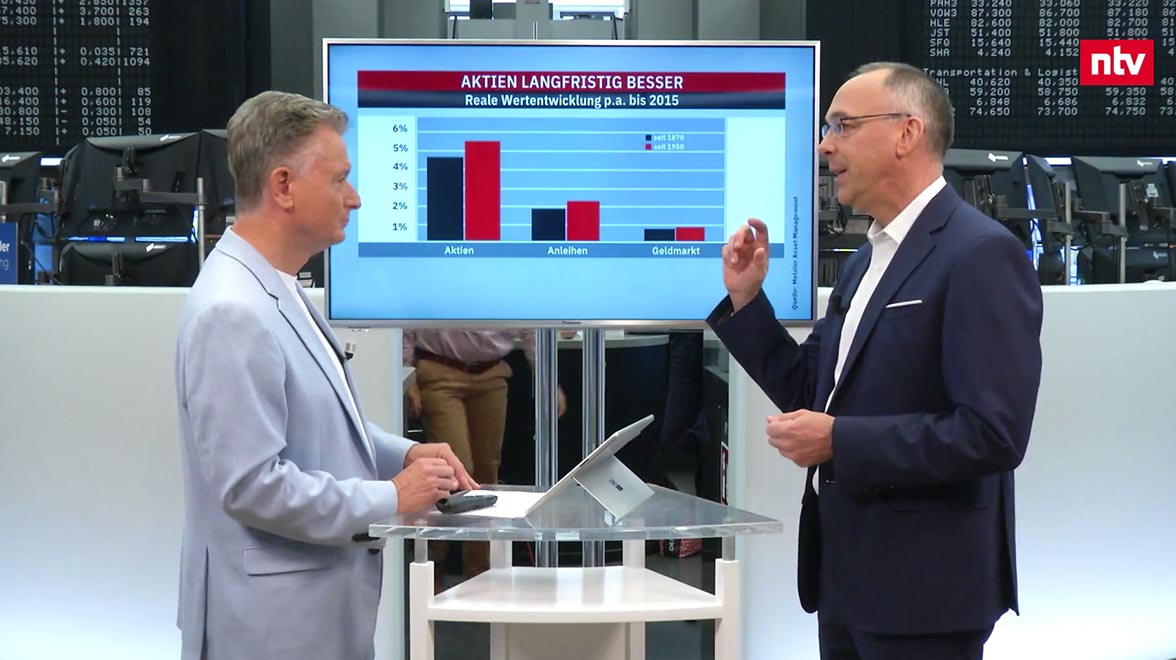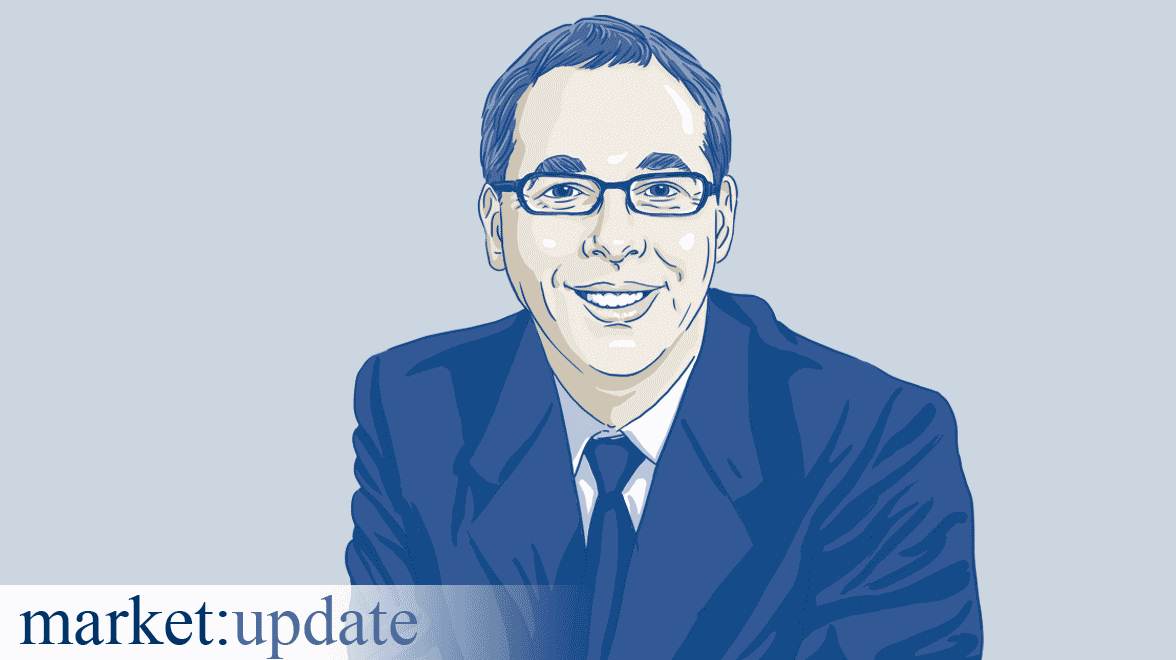n-tv-Interview | Altersvorsorge mit Aktien, Anleihen & Geldmarkt
The article is not available in the chosen language und will therefore be displayed in the default language.
Aktien sind langfristig die renditestärkste Form der Altersvorsorge – deutlich erfolgreicher als Anleihen oder Geldmarktanlagen. Im Interview mit n-tv erklärt Edgar Walk, Chefvolkswirt bei Metzler Asset Management: Wer früh beginnt und einen langen Anlagehorizont hat, profitiert besonders vom Zinseszinseffekt und kann kurzfristige Kursschwankungen gelassen hinnehmen. Anleihen – vor allem Staatsanleihen – gelten als sicher und bleiben zur Risikostreuung sinnvoll, sollten bei jungen Anlegern aber nur eine geringe Rolle spielen.
In Phasen hoher Inflation können Rohstoffe, Gold und Immobilien als Beimischung sinnvoll sein – ein breit diversifiziertes Portfolio bleibt jedoch das Fundament. Mit einem Multi-Asset-Fonds lässt sich Altersvorsorge flexibel und risikoadäquat umsetzen. Entscheidend ist: Die Anlagestrategie muss zur persönlichen Risikoneigung und zum aktuellen wirtschaftlichen Umfeld passen.
 Deutsch
Deutsch English
English


